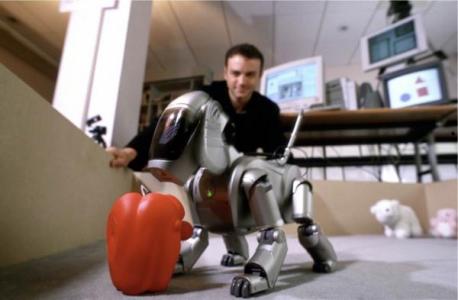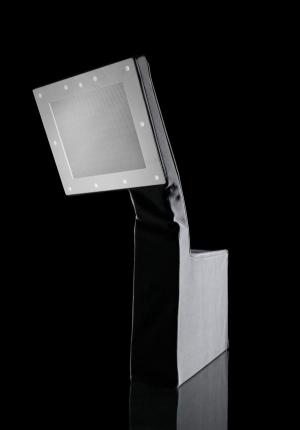Frederic Kaplan
EPFL Lausanne
Switzerland
Research Areas
Computational and Artificial Intelligence, Machine Learning, Natural Language Processing, Robots
Interview Synopsis
In this interview, Kaplan outlines his career in robotics, starting from Sony all the way to his position at EPFL. He discusses his contributions to various robotics projects, including the Sony AIBO robot, and the design influences from biology, psychology, and art. Commenting on his interactions and collaborations with Luc Steels and other roboticists, his experience with his startup and the robot-art movement, and the future challenges of the field, he also provides advice for young people interested in a career in robotics.




.png)

Frederic Kaplan was born in Paris, France. He graduated with an engineering degree from the Ecole Nationale Superieure des Telecommunications in 1997 and went on to earn a Ph.D. in Artificial Intelligence from Université Pierre et Marie Curie (Paris VI) in 2000. He then joined the Sony Computer Science Laboratory in the robotics department from 1997 to 2006, where he helped develop the AIBO robot in Japan. Following this, he worked as a researcher for six years in the Rolex Learning Center at EPFL. In 2012 he joined the teaching staff at EPFL as Professor and Chair of Digital Humanities, and became director of the newly founded Digital Humanities Laboratory (DHLAB). Kaplan is also co-founder of the OZWE, a 2008 startup company which designs and manufactures interfaces, electronic products, and digital publications, and Executive Director of Bookapp.com, a company he helped launch in 2010 with Laurent Bolli and Cristiana Freitas. Currently, he is directing the "Venice Time Machine" project in collaborations with Ca'Foscari University in Venice and the Venice State Archives, as well as other museum and exhibition projects. Additionally, he is chief editor of Frontiers in Digital Humanities and co-directs the Digital Humanities book collection at EPFL Press. Kaplan's research interests include innovative interfaces, digital humanities, artificial intelligence, robotics, developmental systems, multi-agent systems, language acquisition, and gesture interaction. His work in robotics includes contributions to several projects, such as the AIBO robot, Wizkid, and QB1, as well as more than a hundred scientific papers, six books, and about ten patents.